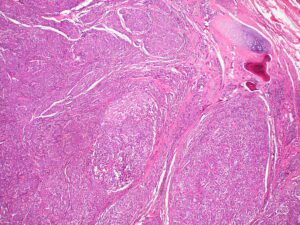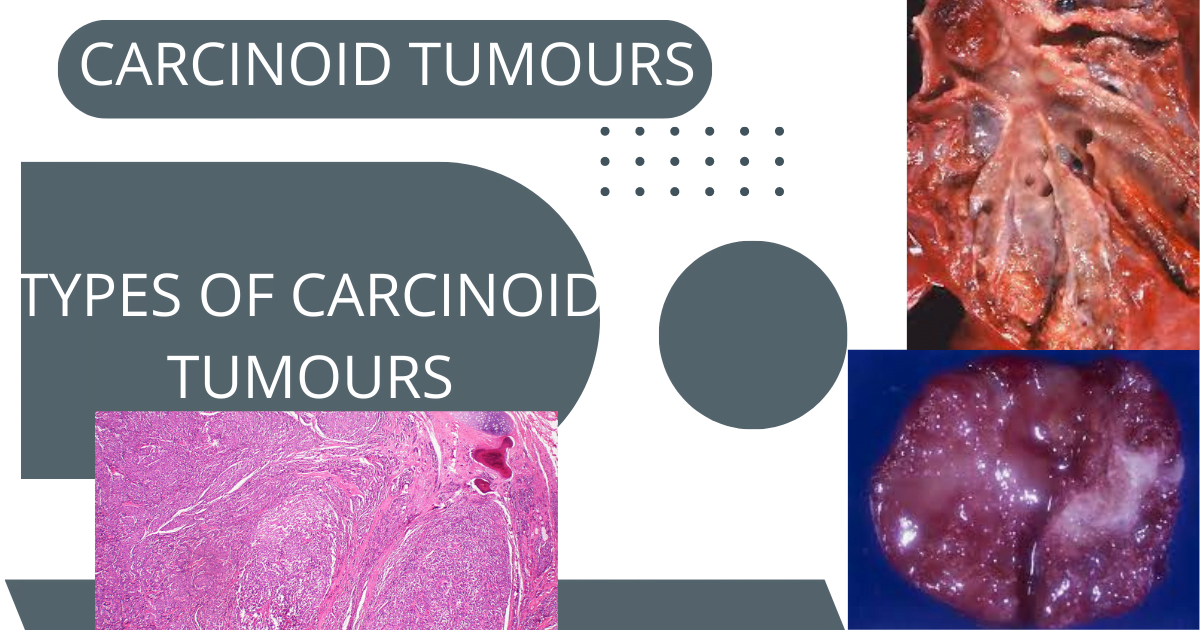Most of the time stomach pain and a bad cough we think are the symptoms of food poisoning or seasonal changes. but these less concerning symptoms can be caused by medical conditions like Carcinoid Tumours.
so if you wonder to know how you can aware of these medical conditions and you can take the necessary precautions then stay tuned to this article to get every detail of a carcinoid tumour.
Carcinoid Tumours
This is a kind of tumour which grows slowly and it’s a rare type of tumour. it is part of a group of diseases which is known as neuroendocrine tumours. these types of tumours can grow in many body parts. Carcinoid tumour develops from the cells known as enterochromaffin and these are hormones and chemical-producing cells. these types of cells can be present in the appendix, liver, bronchi, colon, bile ducts, small intestine, ovaries and other organs.
The cells which are enterochromaffin develop carcinoid tumours. these have the ability to produce hormones in large amounts sometimes. when these tumours show symptoms then they affect hormones. so when these hormones circulate in the blood then it results in carcinoid syndrome cause.

Risk of Carcinoid Tumours:-
There is not any known reason for Carcinoid tumours for which people. but there are few things which can move people towards the below medical condition. these are below:-
- Age:- Carcinoid tumours can occur at any age, but they are more common in adults between the ages of 30 and 60
- Gender:- Women are more prone than men to carcinoid tumours
- Stomach Condition:- Those people who are suffering from stomach medical conditions such as Zollinger-Ellision syndrome or pernicious anaemia are more suspected of the growth of carcinoid tumours. in this disease, there is a change in the amount of acid which produced by the stomach.
- Family history:- There may be a slightly increased risk of developing carcinoid tumours if you have a family history of these tumours or certain genetic syndromes, such as multiple endocrine neoplasia type 1
So from these above points now, it is clear what is carcinoid tumour and who has more chance of developing this type of disorder.
So now we will discuss the types of carcinoid tumours.
From the above discussion, it is clear what is carcinoid tumour and which people have more chances of developing this type of disease.

Types of Carcinoid Tumours:-
Below are three types of carcinoid tumours
- Gastrointestinal Carcinoid Tumors:- These tumours are the most common type of carcinoid tumours. They typically originate in the digestive system, including the stomach, small intestine, appendix, colon, and rectum.
- Hormone-secreting Tumours:- These produce hormones such as serotonin, histamine, and dopamine. when these types of hormones circulate in the blood then this results in developing carcinoid syndrome symptoms.
- Slow-growing tumours:- this is the most common type of carcinoid tumour. this type of tumour does not grow fast and spread to the other body parts.
- Fast-growing tumours:- as its name, it means it grows fast and quickly and it is large in size.
- Bronchial Carcinoid Tumors:-These tumours arise in the bronchial tubes of the lungs. They can cause symptoms such as coughing, wheezing, and difficulty breathing.
- Thymic Carcinoid Tumors:-These tumours originate in the thymus, a gland located in the upper chest. Thymic carcinoid tumours are relatively rare but can be associated with certain conditions, such as multiple endocrine neoplasia type 1
- Pancreatic Carcinoid Tumors:- These tumours develop in the pancreas, an organ responsible for producing digestive enzymes and hormones such as insulin. Pancreatic carcinoid tumours are relatively rare compared to other types of pancreatic tumours.
When people develop any of the above types of disease then there are some signs which are following:-

Signs and Symptoms of Carcinoid Tumour:-
in its initial stage carcinoid tumour symptoms are found in the appendix, stomach, rectum, colon, small intestine or lungs.
these are the most common places for carcinoid tumours. so when carcinoid tumours develop in these two areas then it shows many symptoms. these symptoms are:-
In Digestive Tract:-
Below are some signs that indicate carcinoid tumour in the digestive tract
- Abdominal pain
- Rectal pain
- Nausea
- Vomiting
- Diarrhoea
- Constipation
- Skin Flushing
- Blood in bowel
In Lungs:-
- Chest pain
- Diarrhoea
- Wheezing
- Breath Shortness
- Redness on the face
- Show some stretch marks like pink or purple marks on the skin
These above-given symptoms are due to some causes so now will discuss all the causes of carcinoid tumours.

Causes of Carcinoid Tumour:-
As stated earlier, carcinoid tumour causes are still unknown or unclear to doctors. Generally, cancer grows in the body when a cell develops mutations in its DNA. Due to this mutation, the growth of cells continues and starts to divide when healthy body cells die.
Therefore, when these cells accumulate, they develop into a tumour. Cancer cells attack nearby healthy cells and slowly spread into the other parts of the body. The reasons for these mutations, which result in carcinoid tumours, are yet to be discovered. However, it is clear that these tumours develop in neuroendocrine cells.
The causes and subsequent effects of carcinoid tumours can be classified into various categories or stages depending on the time of diagnosis. Read along!
Stages of Carcinoid Tumour:-
It grows primarily in two body parts. and these are
- Lungs
- Gastronomical tract
When this medical condition is diagnosed by the doctor the doctor discuss its different stage according to the location of the disease
In the Gastronomical Tract:-
- Localised stage:- It remains in the place of origin like the colon, stomach and intestine. it does not spread to the other parts of the body.
- Distant stage:- in this stage, it spread to the other parts of the body like the lungs, liver and bones
- Regional stage:- In this stage, it moved to the other small glands, lymph nodes and other tissues like muscle or fat.
In the Lungs:-
- Stage 0:- It developed in the upper layers of the cells that line with the airways
- Stage I:- In this tumour is present only in the lungs and does not spread into the lymph nodes
- Stage II:- In this stage, cancer develops in the lungs into a few centimetres in size. When doctors diagnose this stage, cancer may not have moved to the lymph nodes around the place of origin on the same side of the chest.
- Stage III- Here, the tumour develops in the lungs, and lymph nodes in the middle of the chest. There are possibilities that the tumour has spread into the chest, i.e. chest wall, heart and collar bones.
- Stage IV- When a patient reaches the fourth stage of lung carcinoid tumour, it might invade both the lungs, fluid around the lungs and other body parts.
The treatment of carcinoid tumours depends on the stage a patient is in and its severity. Read on to know about the treatment methods for this tumour

Treatments for Carcinoid Tumour:-
Depending on the location and intensity, doctors choose carcinoid tumour treatment options. These include,
- Surgery
- Observation
- Radiation Therapy
- Cryotherapy
- Hormone Therapy
- Immunotherapy
- Radioembolisation
- Chemotherapy
Prevent Carcinoid Tumour:-
Whereas most disease has prevention ways, the same does not apply to carcinoid tumours. Just like the causes, the prevention method of this tumour is still unclear. However, some studies stress that people who smoke are more likely to develop lung carcinoid tumours. Therefore, tobacco smoking can be considered one of the risk factors for carcinoid tumours. Also, by treating carcinoid tumours at the right time, individuals can prevent carcinoid syndrome symptoms.
Carcinoid Tumour Diagnosed:-
As the symptoms of carcinoid tumours are difficult to diagnose, they are mostly found while treating other diseases.
However, to conduct carcinoid tumour diagnosis, doctors do the following tests –
- Biopsy
- Upper endoscopy
- Octreoscan
- Capsule Endoscopy
- Blood and urine test
- Colonoscopy
- Radionuclide scanning
- x-ray
- CT or computer tomography
- MRI

The prognosis for Carcinoid Tumour:-
Following is a detailed discourse on the prognosis of carcinoid tumours occurring in the gastronomical tract or lungs.
1. Gastronomical Carcinoid Tumour Prognosis:-
With surgical resection, the survival rate for gastronomical carcinoid tumours can improve. Patients who have received surgical treatment have an overall 83%, 5-year survival rate.
2. Lung Carcinoid Tumour Prognosis
The prognosis of lung carcinoid tumours is positive. Individuals treated with typical carcinoid tumours have an 85%-95% average five-year survival rate. On the other hand, people who have received treatment for atypical carcinoid tumours have a 5-year survival rate of 50%-60%.
The above-mentioned piece discusses everything about carcinoid tumours. Since these types of medical conditions are difficult to be diagnosed, individuals must be cautious about the genetic disease (if any) and take preventive methods like quitting smoking.
Further, they must follow the guidelines of doctors, and carcinoid tumour management methods like doing yoga and eating healthy high-protein food. Individuals must reach out to doctors whenever they face difficulties breathing, feel pain in the stomach, or notice other symptoms, as discussed above.
So, read the symptoms and details carefully and eliminate the chance of developing a carcinoid tumour.
FAQ:-
Q1:- What is the most common cause of carcinoid?
Ans:- neuroendocrine tumours of the midgut that metastasize to the liver
Q2:- How is a carcinoid tumour diagnosed?
Ans:- Computed tomography (CT) scan
Q3:- Is carcinoid tumour serious?
Ans:- tumours can be life-threatening
